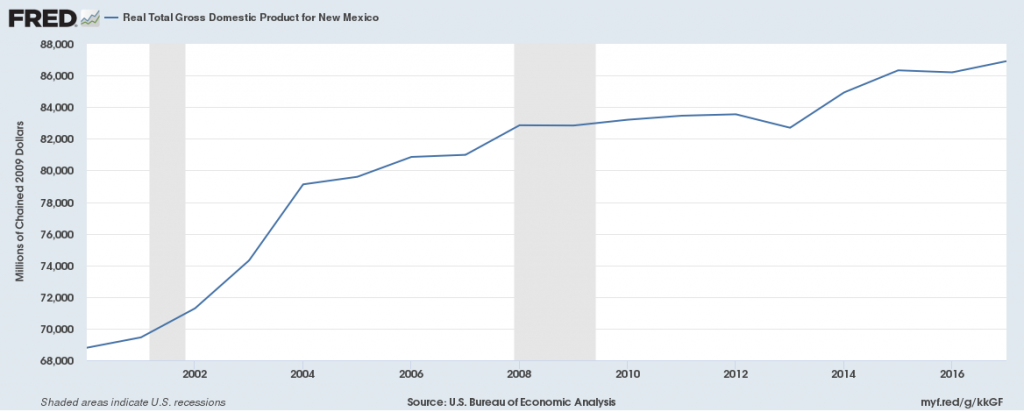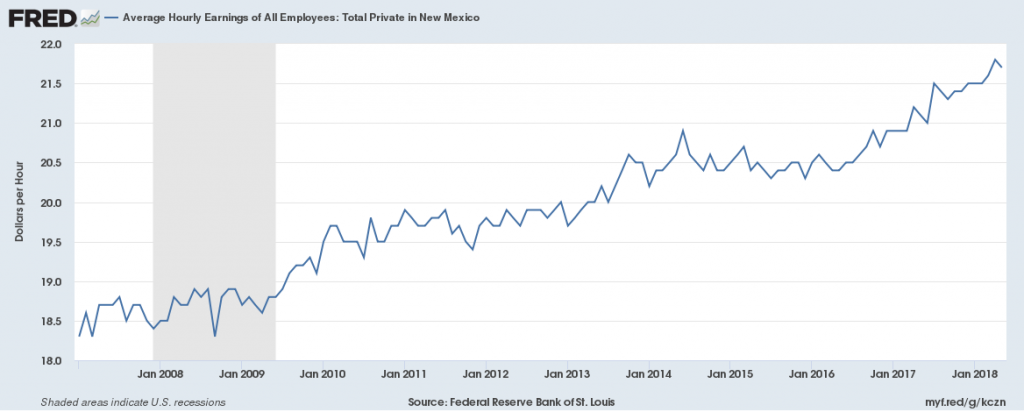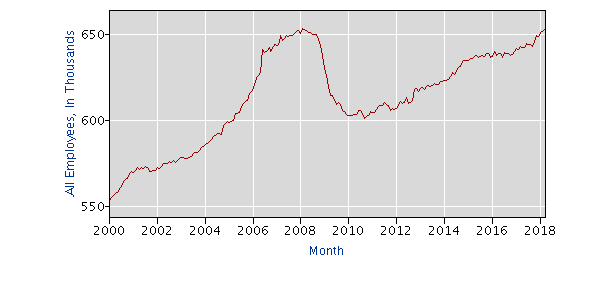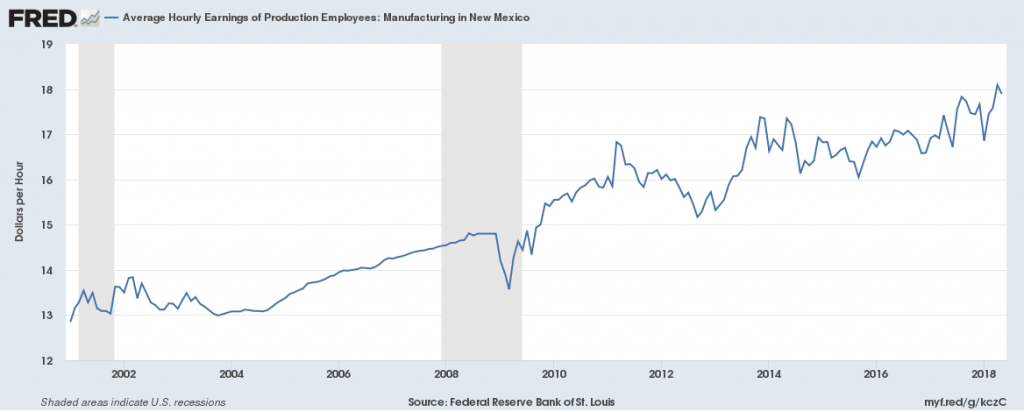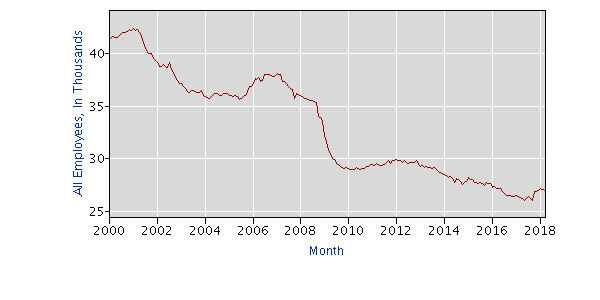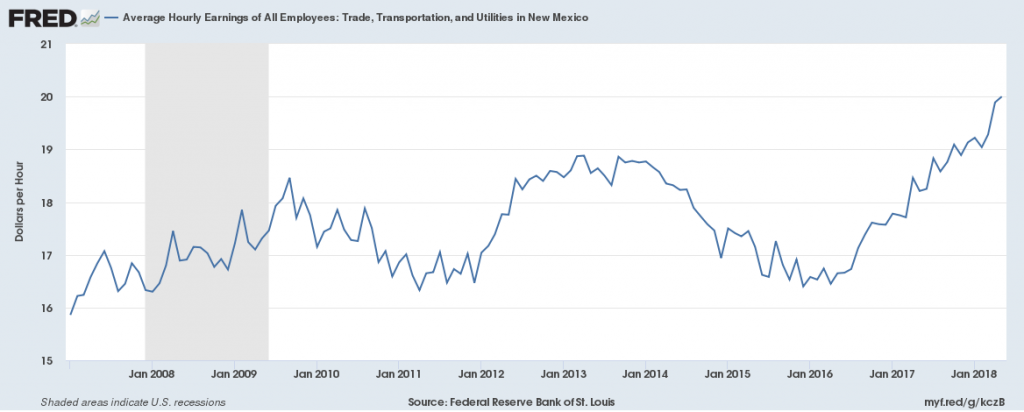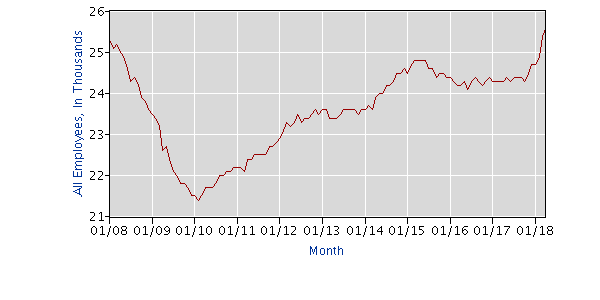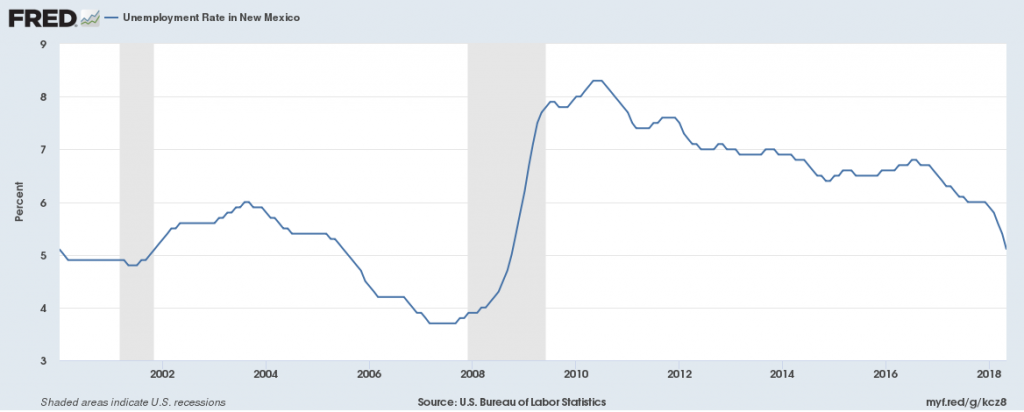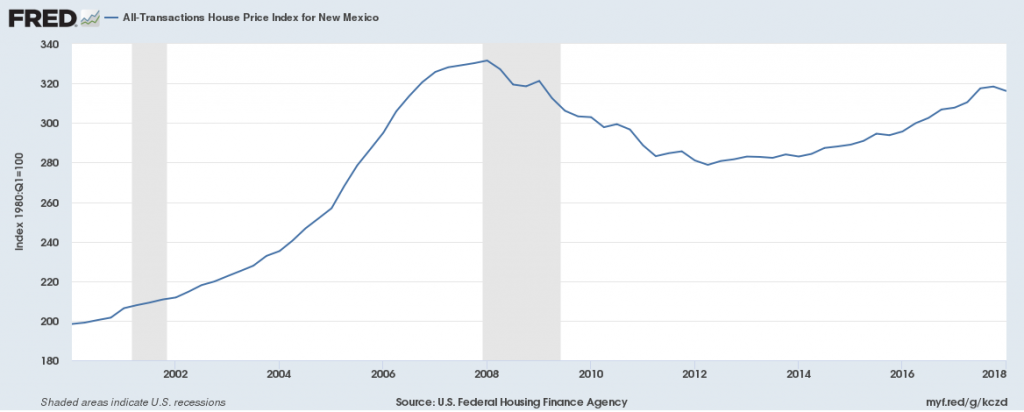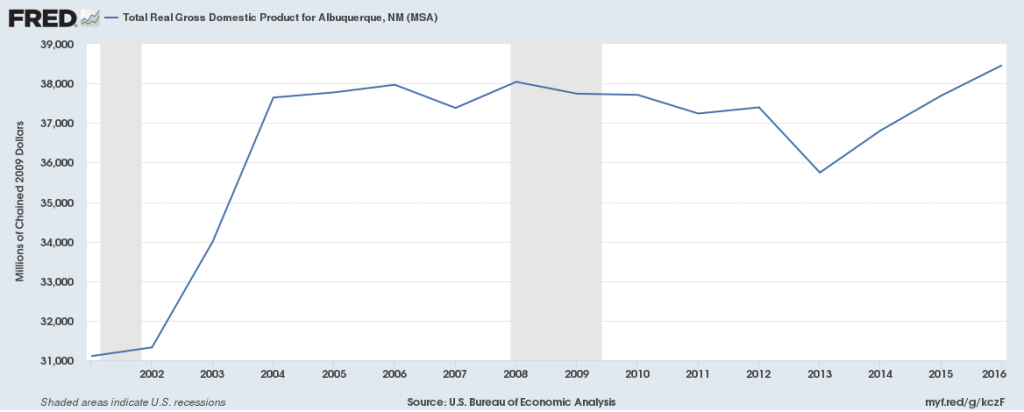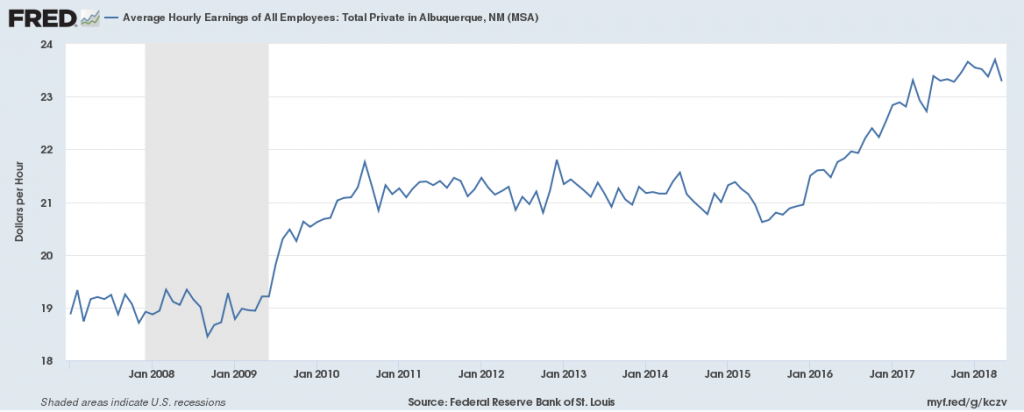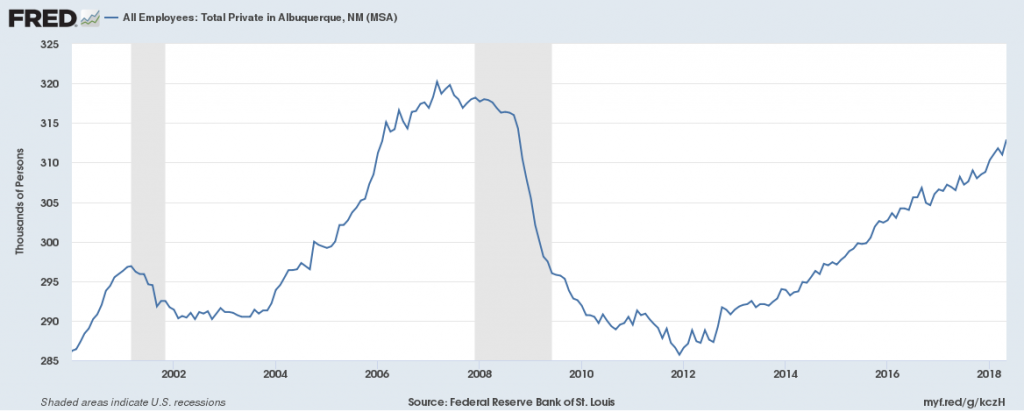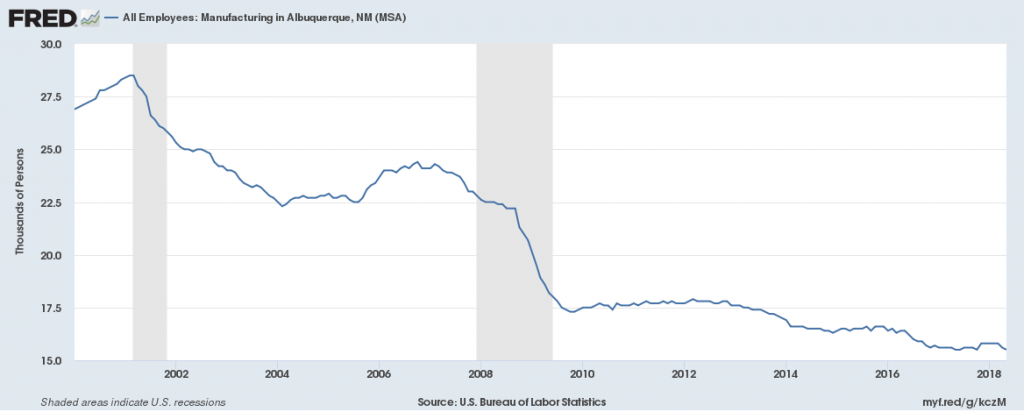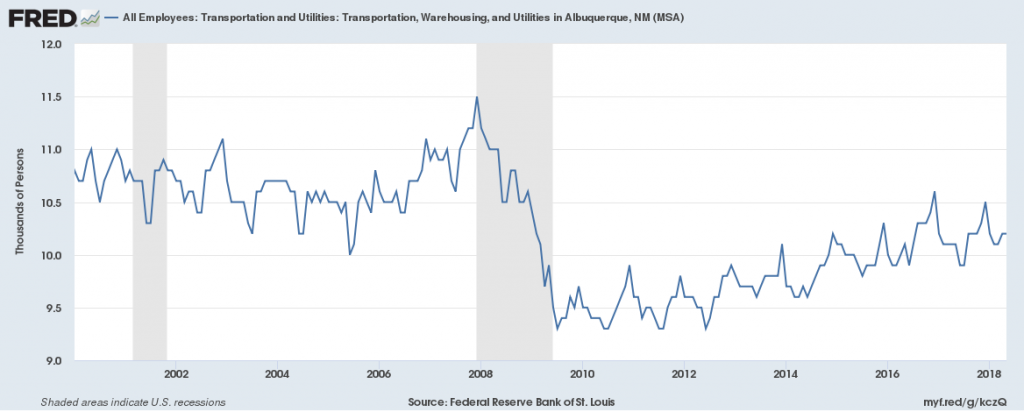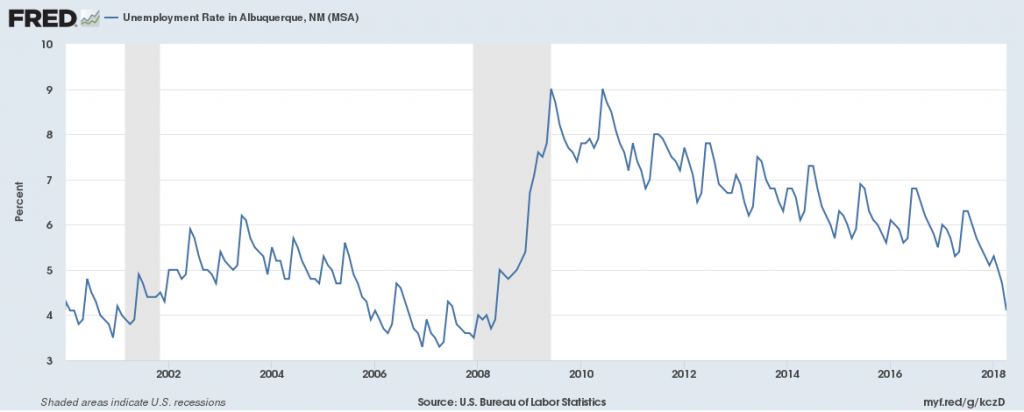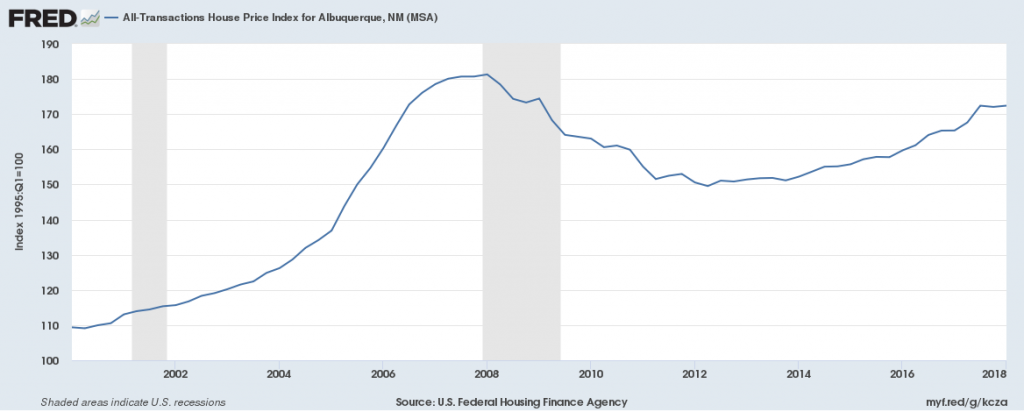Gross Domestic Product
Real GDP (a measure of economic growth) increased since 2000, going from $69 billion in 2000 to $88 billion in 2017.
Jobs
Private-sector employers have added 50,000 jobs since 2010, the national low point for private-sector employment. From 2017 to 2018 the private sector added 15,000 new jobs. There were 655,000 total jobs in the private sector in 2017, the same as before the recession. Average hourly wages in the private sector grew from 2009-2018, going from $19/hr to $21.75/hr.
Manufacturing employment decreased since 2001, especially during the recession. There were 27,500 jobs in this sector in 2018, far below pre-recession levels of 38,000 jobs. Average hourly wages of manufacturing employees increased from 2009-2018, going from $14.50/hr to $18/hr.
There were 25,500 jobs in the Transportation, Warehousing and Utilities sector in 2018, the same as before the recession, showing a recovery in this sector. The average wage in Trade, Transportation and Utilities occupations has fluctuated around $18/hr since 2008, but has been growing since 2016 and averages $20/hr in 2018.
Unemployment
The unemployment rate in 2018 is 5.1%, down from 6.5% in 2017. This is below the national average of 3.9% unemployment.
Housing
The House Price Index, a measure of the cost of housing, decreased from its 2008 peak until 2012 when it resumed growth, hitting 320 in 2018 (compared to 330 in 2008), showing rising housing costs that are still below past highs.
Albuquerque
Gross Domestic Product
Real GDP (a measure of economic growth) increased significantly from 2002-2004, but has stagnated since then, going from $38 billion in 2003 to $38.5 billion in 2016.
Jobs
Private-sector employers have added 23,000 jobs since 2010, the national low point for private-sector employment. From 2017 to 2018 the private sector added 6,000 new jobs. There were 313,000 total jobs in the private sector in 2018, the same as before the recession. Average hourly wages in the private sector grew from 2009-2018, going from $19/hr to $23.50/hr.
Manufacturing employment decreased since 2001, especially during the recession. There were 15,500 jobs in this sector in 2018, far below pre-recession levels of 24,000 jobs. The average hourly wage of manufacturing employees was $17.16/hr in 2018.
There were 10,250 jobs in the Transportation, Warehousing and Utilities sector in 2018, slightly below pre-recession levels. The average wage in Trade, Transportation and Utilities occupations has fluctuated around $18/hr since 2008, but has been growing since 2016 and averages $20/hr in 2018.
Unemployment
The unemployment rate in 2018 is 4.5%, down from 6.5% in 2017. This is below the national average of 3.9% unemployment.
Housing
The House Price Index, a measure of the cost of housing, decreased from its 2008 peak until 2012 when it resumed growth, but remains below pre-recession levels, showing rising housing costs that are still below past highs.






